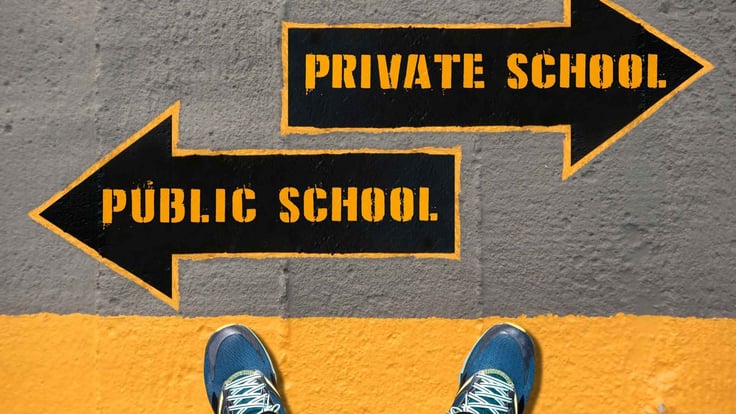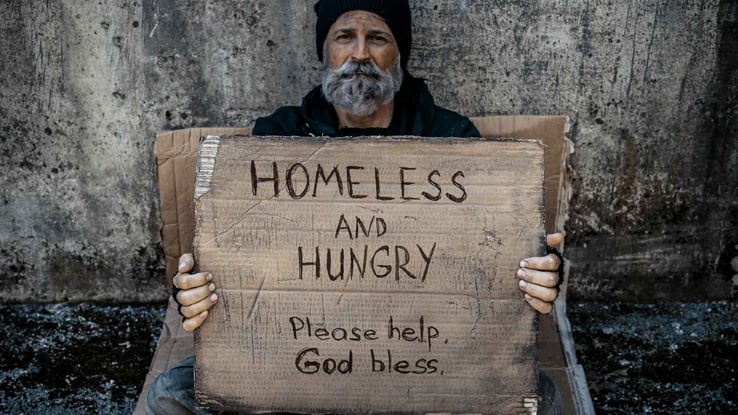What do Brazilians notice when they come to live and study in the United States?
We surveyed our Brazilian students and colleagues to glimpse our world through their eyes. Here are just a few of the many things they find fascinating about our country – and we, the people, who live here.
Public Education
It’s easy for Americans to take our public education system for granted - and even criticize it. Students from Brazil see things differently.

“It surprises me how good the public school system is,” says ICES exchange student Sofia from Sao Paulo, living in Magnolia Texas this year. “It’s nice to know that every single student is more than welcome to be there, that they’re encouraged to be there and get help when they need it.”
American High School
“This is obviously something that I expected being shocked with,” confesses Sofia. “Of course, it’s a whole different atmosphere: the buses, the lockers, the football field. Basically, it’s this movie-feeling expectation that all foreign students look forward to. I’m not going to lie: You actually feel that you’re part of a movie.

What have I learned?” she asks. “School can also be a place for you to feel welcome and comfortable, like home. A place where you can fry your brain cells doing crazy math assignments on the first period and then go to cook Greek food on culinary arts on your second period. A place where you can hang out with your friends, but also with your teachers and bus drivers. A place to have fun!”
Attentive Teachers
“The teacher-student relationship is so lovely,” Sofía raves. “My teachers from all of my classes were so sweet and so welcoming. Being a teacher is not an easy job, but I met people that could see beauty through helping people, especially the teenage students who are not easy people to deal with (LOL)."

Different Classes
“The way it works is different (from Brazil),” explains Sofia. “The classes are different. The subjects are different, and the people are different…Teachers here prepare the classes really well. I can see that they spend a lot of time working on it. They make the best for you to understand the subject and when you still have doubts, they are willing to stay after school or at tutoring classes to clarify our doubts.”

World Geography
Like so many foreigners from around the world, Duda, a US-based Brazilian who works in international education, is surprised that many Americans know so little about world geography. “Why do they lack this knowledge?” he muses. “It is not because they simply do not care about the rest of the world, but perhaps because they might be very focused on the problems of their own country.”

School Events
“Students are pleasantly surprised by the school parties, like homecoming, because we don’t have such things here in Brazil,” explains Luane, a Brazilian agent who sends dozens of high school students to the USA every year. Extracurricular activities, sports and school-sponsored events make a big impression on students from Brazil.

Independent Teenagers
“The thing that most surprised me is how independent American teenagers are,” remarks ICES student Mariana, also from Brazil. “As they can drive by the age of 16, they don’t need their parents to take them to school, or anywhere. They can hang out with their friends and go to football games all by themselves!”

“American teenagers also can work,” notes Maria Rita also with ICES. She is studying in Gregory, Michigan. “I have a lot of friends that work here. Like they work after school or in the weekend to pay the gas or other things.”
Conservative Dress Codes
How should Brazilian women dress in the USA? Differently! Part of Luane’s job is to prepare teenage students to adapt to our dress codes. “They are surprised by the restriction of some clothes because what you wear in Brazil might not be appropriate in the same situation in the USA.”

Excellent Etiquette
One thing that surprised me about the US culture, and is really different from Brazil, are American manners,” says Joao who is studying in Colorado this year.

"People say ‘sorry’ for everything. One example of this is when someone passes in front of you at the market while you are walking or is going to hit you. Even if you are wrong, the other person says ‘sorry’. People here are more polite.”
Food & Diet
“(American) food is a very good and bad thing at the same time,” explains ICES student Alexandre. “The foods are good, but they are not good for your health. Everything is high in calories and there is a lot of fast food, so you have to control yourself not to gain weight or harm your health! These are the most different things in my opinion!”

Safety & Security
“Another thing that is different from Brazil is that here in the US it is a lot safer than in Brazil,” claims Joao. “Like, I went to Busch Gardens, and I saw a lot of bags, and baby carriages with things inside of them, and no one got anything from them. If it was in Brazil, those people would probably never see their things again.”

Poverty
“It still surprises me that in one of the richest countries in the world there is misery and poverty in the USA,” laments Duda after several decades living in the USA. “I have seen the same struggle that I have seen down in Brazil in different places of America.”

Generosity
“It surprises me how Americans can be so generous to other people,” remarks Duda. “Why are they so generous? Just like Brazilians, Americans can be generous to any issue or because something matters or is meaningful to them.”

American Friendliness
Sofia from Sao Paolo is the student who raved about American teachers at the start of this post. “It’s not only about the teachers,” she says. “I could write so much for each person that helped me feel more comfortable (in the USA): Counselors, nurses, bus drivers, and people that I don’t even know what their job’s names are, but they are there to help you when you need it."

Would you like to keep looking through Brazilian eyes? You are invited to host an exchange student from Brazil. You will learn about Brazil, but you will learn even more about the United States.
What are waiting for? Click here for more information.


